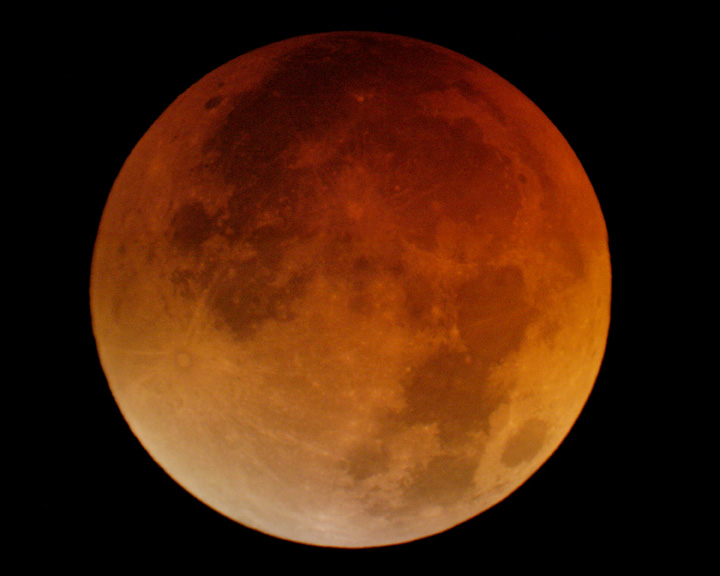| NOTES |
DATE:
|
Tuesday,
August 28, 2007 |
TIME:
|
6:03
am EDT
|
CAMERA:
|
Canon
EOS 300D Digital Rebel |
EXPOSURE:
|
8
seconds @ ISO 800 |
LOCATION:
|
Kalamazoo
Nature Center |
INSTRUMENT:
|
Meade
10" LX200 SCT
@ f/4 (with Lumicon Giant Easy Guider) |
PROCESSING:
|
Two
images combined with Canon PhotoStitch. Unsharp masking, levels
and curves adjusted with Adobe Photoshop 7. |
COMMENTS:
|
The
fully eclipsed Moon as it appeared about 11 minutes after it entered
the umbra, the darkest portion of the Earth's shadow.
According to Rayleigh scattering, the red
glow of a Total Lunar Eclipse arises because sunlight reaching the Moon
must
pass through a long and dense layer of the Earth's atmosphere.
Shorter wavelengths are more likely to be
scattered by the small particles, and so by the time the light has
passed
through the atmosphere, the longer wavelengths dominate. Perhaps
a tad complicated, but it sure is pretty! |
|

